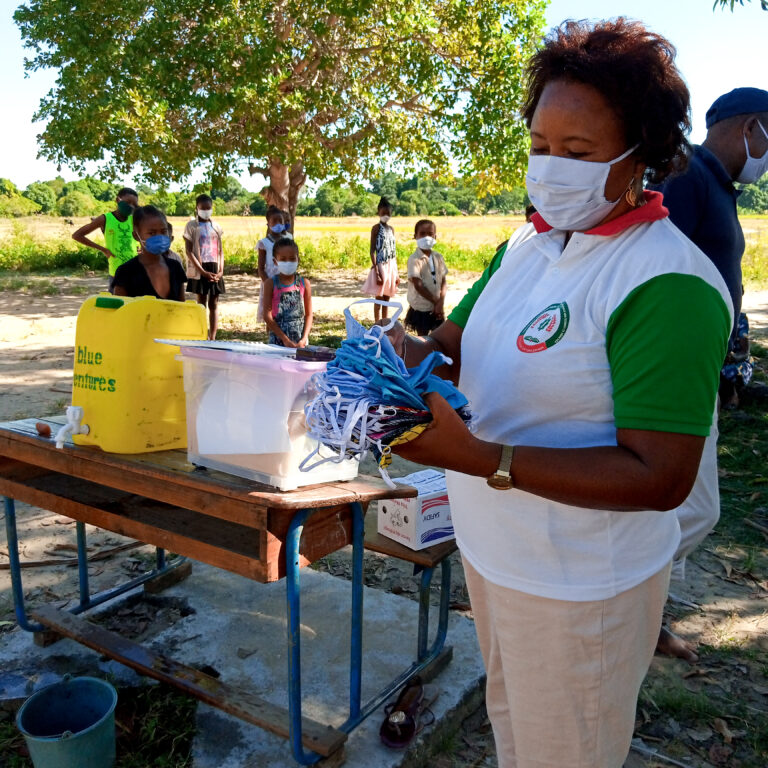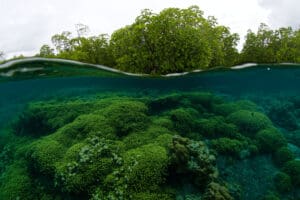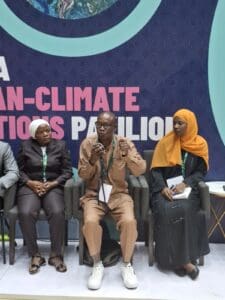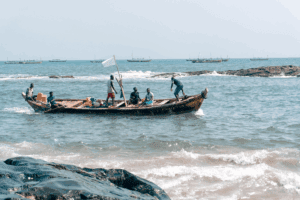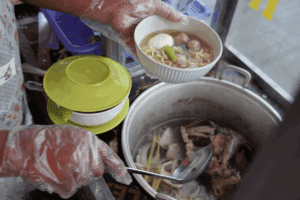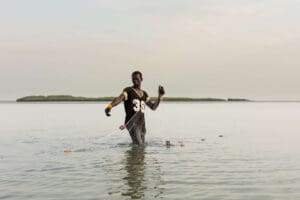New research published in Jamba – The Journal of Disaster Risk Studies shows how Blue Ventures and partners’ COVID-19 response in Madagascar delivered timely and effective health assistance to remote coastal communities. The paper demonstrates how conservation organisations using community-focused and multi-sectoral approaches can provide emergency responses.
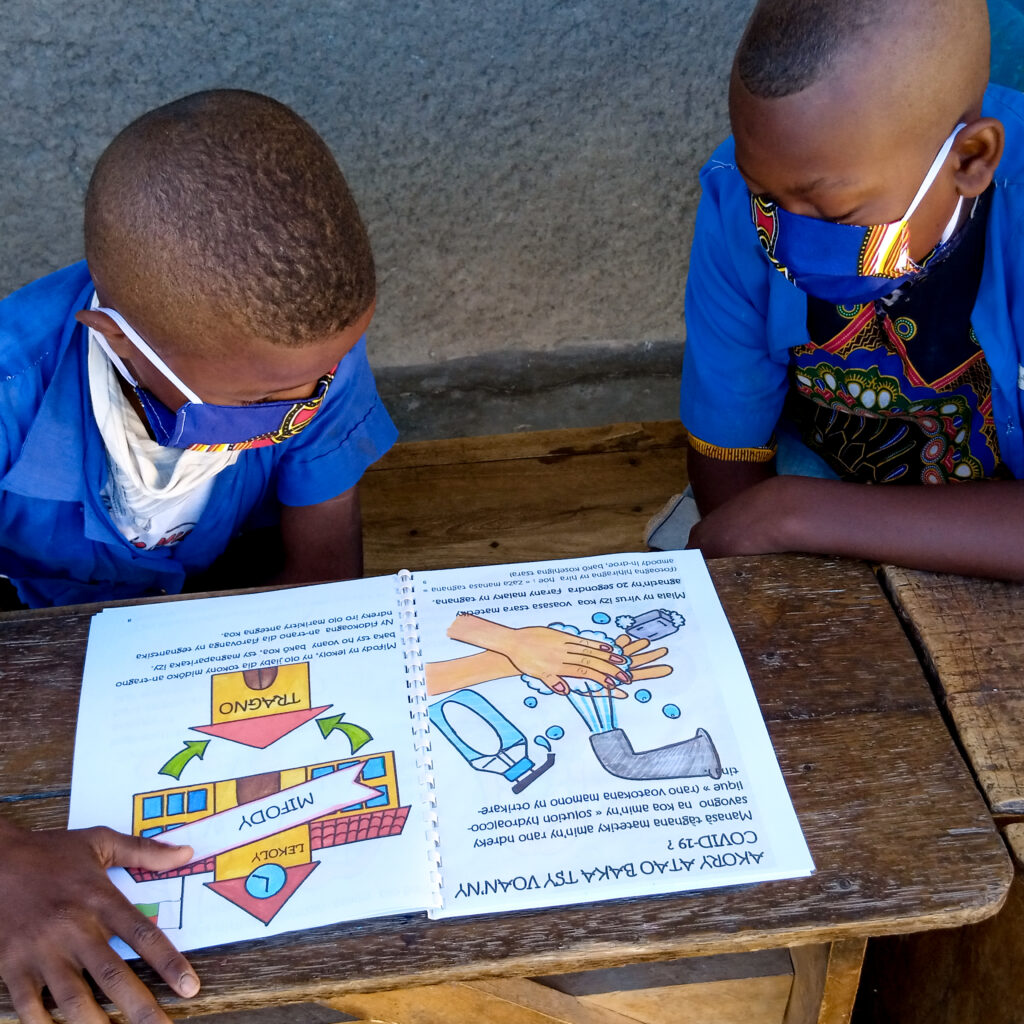
“That a marine conservation organisation has been able to help shield coastal communities in Madagascar from some of the health and economic impacts of the pandemic is not only something we should feel proud of, but that we need to learn from, because sadly it won’t be long before we’re responding to another crisis,” said Dr. Vik Mohan, our Director of Community Health and one of the study’s authors.
“Our work with communities in Madagascar during the COVID-19 crisis shows how vital it is to go beyond conservation and look closely at how to meet the needs of local people. That we were already on the ground and had built strong relationships with key local partners made these interventions possible and effective. This approach enabled us to intervene so effectively during the pandemic and is one we believe and hope that the wider conservation sector will adopt.
“When COVID-19 hit, the World Health Organisation’s early advice was a one-size-fits-all approach that told people to lock down their economy and stay home. The problem is that in coastal Madagascar people have to fish to live; it’s not an option for them to stop fishing and stay home. Because we work so closely with communities there, we were well-positioned to develop a locally appropriate response to this public health crisis, and it was incredibly effective. Rather than trying to fit into a prescribed response, we could craft advice that made sense for these communities, for example how to continue fishing safely and provide food for your family,” said Dr. Mohan.
“The Jamba paper describes the impact of our health response on the community and demonstrates that a marine conservation organisation can develop a health response for a situation like the COVID-19 pandemic. We could better navigate the crisis as an organisation because we didn’t need to shut down our operations during the pandemic, making us more resilient. This will not be a one-off event; due to the climate and ecological emergency, we will need to respond to health and environmental crises more regularly and on an increasingly larger scale,” he said.
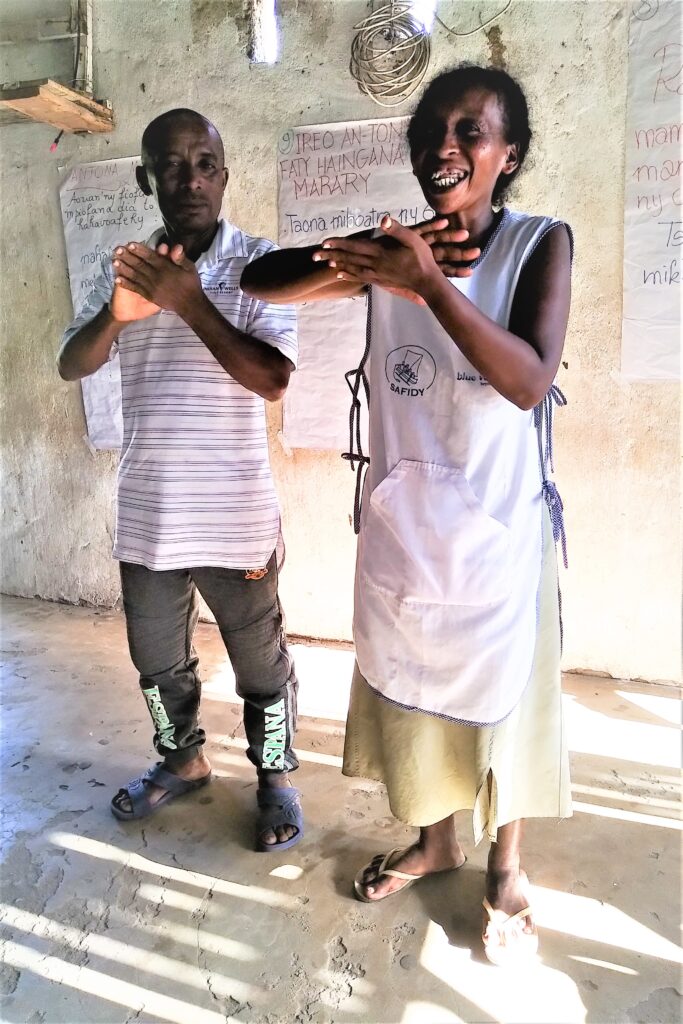
“Our response included running workshops on handwashing, social distancing and other health protection and disease prevention measures, supplying face masks and handwashing stations, and updated training and information to clinical staff. Our non-health staff took part in the health response where possible and provided vital additional manpower where it was most needed.”
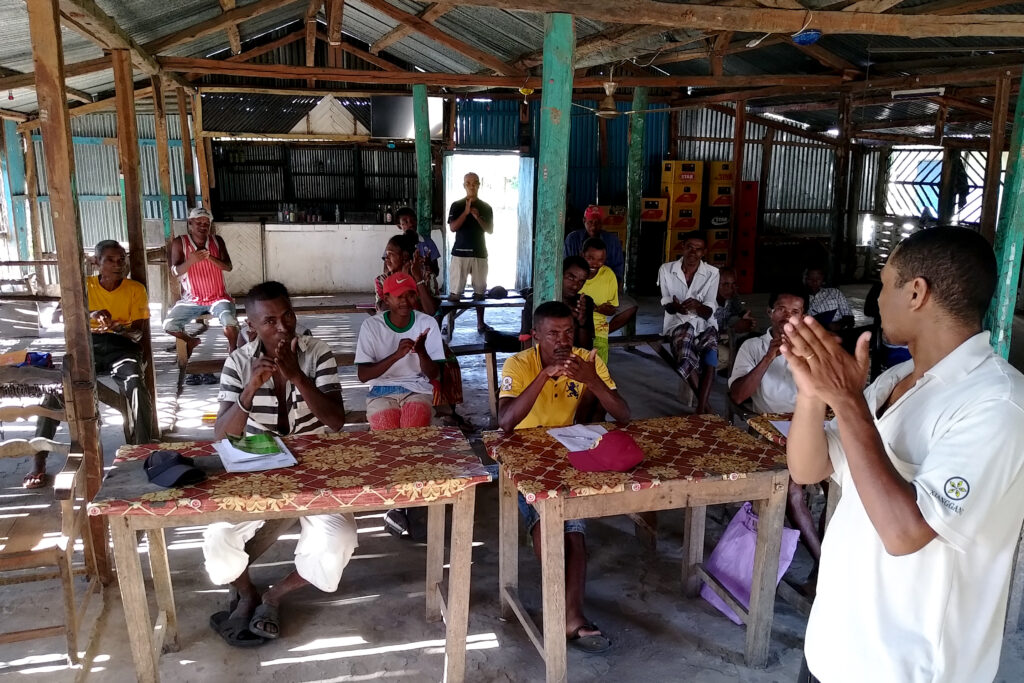
The work focused on four key areas aimed at:
- Reducing community transmission of the virus through social distancing, handwashing, mask-wearing.
- Shielding the most vulnerable from the disease, ensuring their basic needs were met.
- Strengthening health systems to better maintain existing services and withstand the pressure of a pandemic, including reducing client-clinician transmission.
- Promoting the vaccine and achieving high vaccine uptake in BV’s areas of operation.
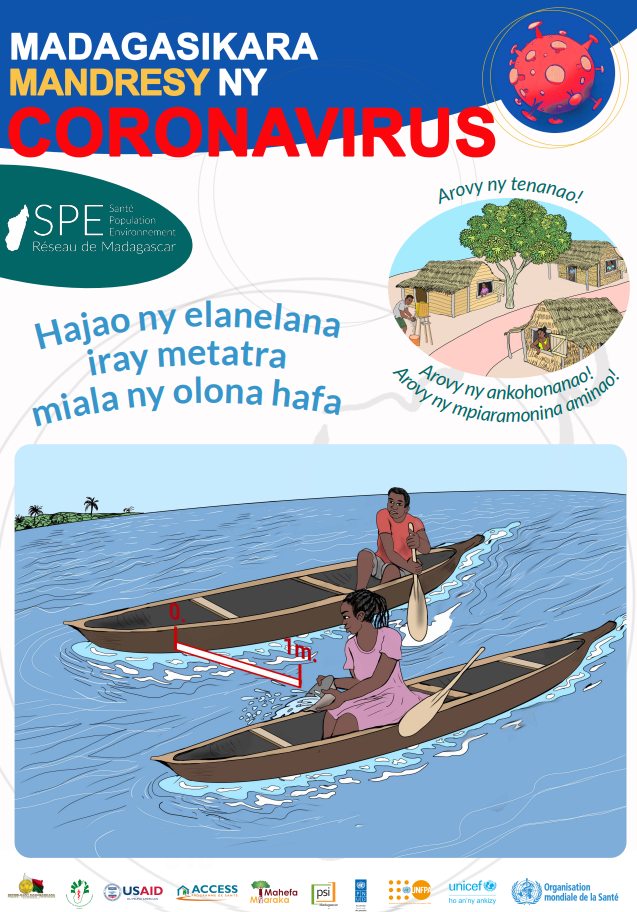
BV helped to set up more than 200 handwashing stations in 100 communities and conducted more than 2,500 door-to-door household visits to provide essential public health information and sanitation items such as soap and water. Clinical training led to over 80 community health workers being able to record case data and administer COVID-19 vaccines, and 17 health centres were supported to provide COVID-19 treatment and vaccinations.
With health and environmental emergencies set to increase in severity and frequency due to climate change, this important case study could inspire other organisations to work holistically with communities in response to the challenges they face. It also shows that while people may not consider nature conservation organisations as obvious emergency responders, their presence in remote areas and close relationships with local people means they can be well or even best-placed to deliver frontline services and crisis support.
“Our COVID-19 response in Madagascar provides compelling evidence for what can be achieved when you act in a multi-sector way that benefits communities, our organisation and ultimately the environment because we can continue our important work of rebuilding fisheries,” said Dr. Mohan.
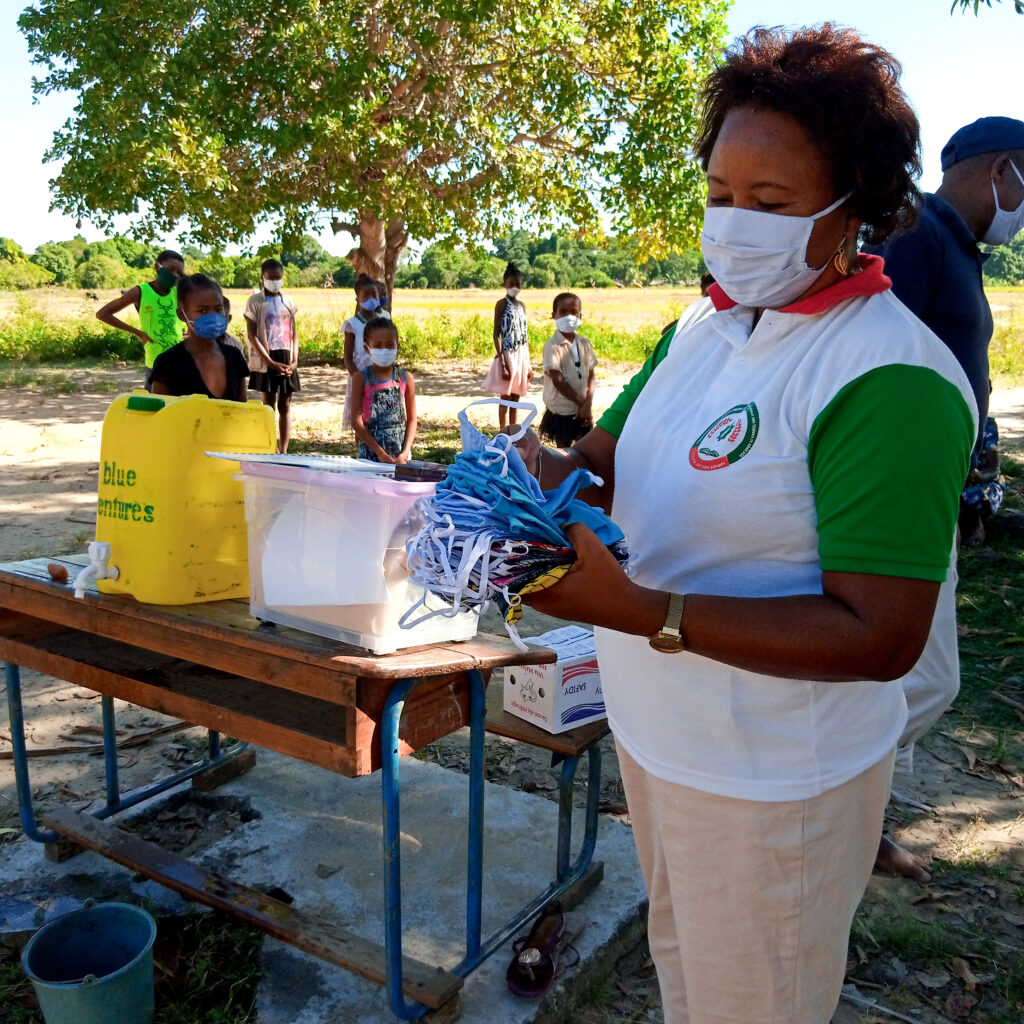
Hear directly from Dr Vik Mohan, one of the paper’s co-authors, to find out why a community-focused approach for conservation organisations can make a massive difference in people’s lives…
“Our field-based teams were able to develop a response to protect communities from the worst impacts of the #COVID19 pandemic, whilst enabling them to continue to earn a livelihood from fishing.”
Learn more in today’s publication of @Jamba_Journal 📖 https://t.co/MHfvsiisk2 pic.twitter.com/7gEff99p4T
— Blue Ventures (@BlueVentures) November 1, 2022
Read the full paper here: A conservation organisation’s approach to COVID-19: Lessons learned from Madagascar
Find out more about Blue Ventures’ community-health work in Madagascar during COVID-19:
From reproductive health to COVID-19: thirteen years of responding to community health needs
Going beyond conservation: responding to community health needs during the COVID-19 pandemic

